By: Esther Pransky, Lubicom Staff
Five pairs of brown eyes looked at us solemnly.
It was the day before Yom Kippur, and we were discussing improving our good deeds as a family.
“I know, I know!” our three-year-old was wiggling excitedly. “Maybe Mommy and Daddy can give us more treats this year.”
Hmmm… Somehow, our message wasn’t getting through.
A FRESH START
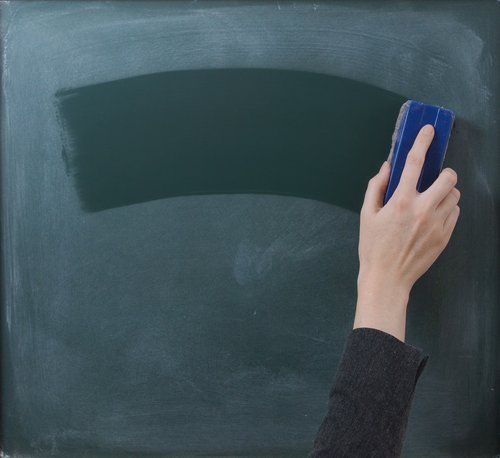
We talk about “fresh starts” and a new year, but what does that mean? For young children, not much. The concept of time is fuzzy as it is.
Some concrete visualizations may help. Take a whiteboard, for example. You and your kids can fill it with scribbles, pictures, or even regrets from the past year.
Now, erase it! Show your kids the bright, blank space, ready to be filled with good thoughts and good deeds.
You can create the same inspirational effect with sidewalk chalk and a garden hose.
But what comes after the inspiration?
From our own experience, we know all too well that good intentions DO NOT always – or even often – translate into successful follow-through.
Let’s explore some successful strategies to help our children. (And maybe even ourselves…)
FAMILY GOOD DEEDS
Research shows that social accountability is a powerful tool for reaching goals. A 2015 study found that 76% of people who wrote down a goal AND sent weekly progress reports to a friend succeeded.
Within the family, you have automatic accountability.
Here are some ideas to get you started:
Focus on the holidays: Prepare an extra dish or even a whole meal for another family. It could be a new neighbor, a new mom, or a family dealing with illness.
Good deeds begin at home: Let the children choose a daily or weekly chore that appeals to them. You may be surprised. Miriam, who’s been arguing for years about setting the table, might jump at the chance to sweep.
Who knew?
Think beyond unpacking groceries or clearing dishes. Taking out the trash, or “holding the baby while Mommy makes supper” are jobs that can improve your entire evening.
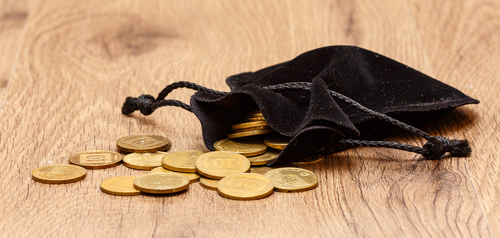
Collect tzedakah for your favorite charity: Depending on the organization, you may be able to visit and see the effects of your tzedakah in action.
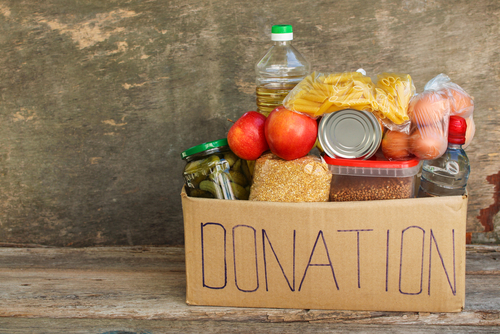
PERSONAL GOOD DEEDS
Helping a child set a goal for individual improvement is an incredible teachable moment for some life skills. The same principles that will help him remember to say thank you for dinner will help him stick to an exercise routine when he’s an adult.
The buzzword around goals is setting SMART goals. There are variations, but the idea is:
Specific
Measurable
Achievable
Realistic
Trackable
For a child, that’s the difference between “I won’t fight with my sister” (probably not realistic or achievable) and “I won’t fight with my sister during supper.” (Ok, that may not seem realistic either, but we have to start somewhere.)
Or, “I’ll behave” (not specific) vs. “I’ll buckle my seat belt right away when Mommy asks.”
Let your children come up with their own ideas for a personal goal, but be there to help guide them in refining it.
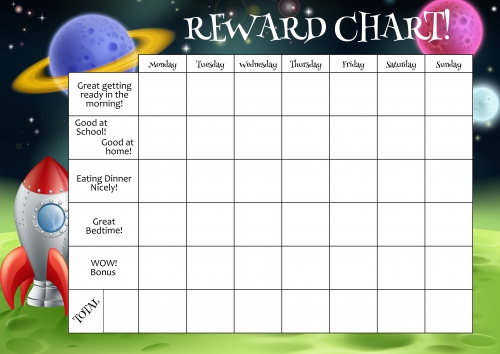
Next, help your child set up a tracking system, or, as we said when we were kids, a chart.
The simplest version will have a box for every day of the week. Your child can fill in the box each night (we hope!) with a sticker, a stamp, or by coloring. The low-tech option needs only paper and markers, but you can get fancy with editable, downloadable versions.
An older child can adapt one of the many student goal setting apps out there.
But however you do it, remember this:
Resist the temptation to micro-manage.
Ground the helicopter.
This isn’t about you imposing a new rule. It’s about your child learning to grow as he succeeds at good deeds.
SWEET REWARDS FOR A SWEET NEW YEAR
Now comes the best part – a reward.
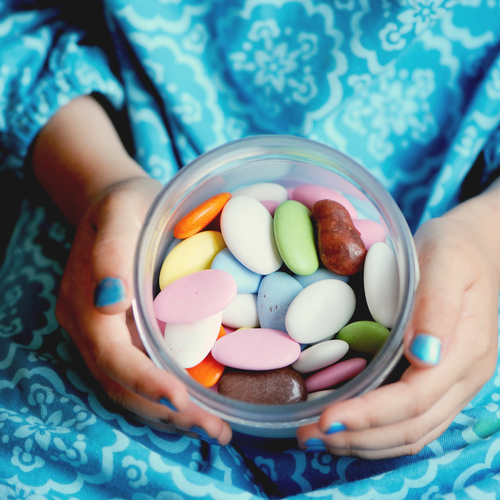
- Young children need you to offer frequent rewards like small treats or an extra bedtime story to keep them on track.
- Older children can wait longer to build up to bigger rewards, like toys, trips, or privileges. Ask them what they want. You may be surprised again!
- Teens can, and should, reward themselves. Give them the car keys and they’ll know just what to do.
By the way, these tips also work for your Rosh Hashanah goals.
Is “I won’t lose my temper ever” realistic? Maybe your goal should be, “I won’t lose it in the morning when my kids are late. Again.”

Don’t forget to reward yourself, too.
Frappuccino, anyone?





